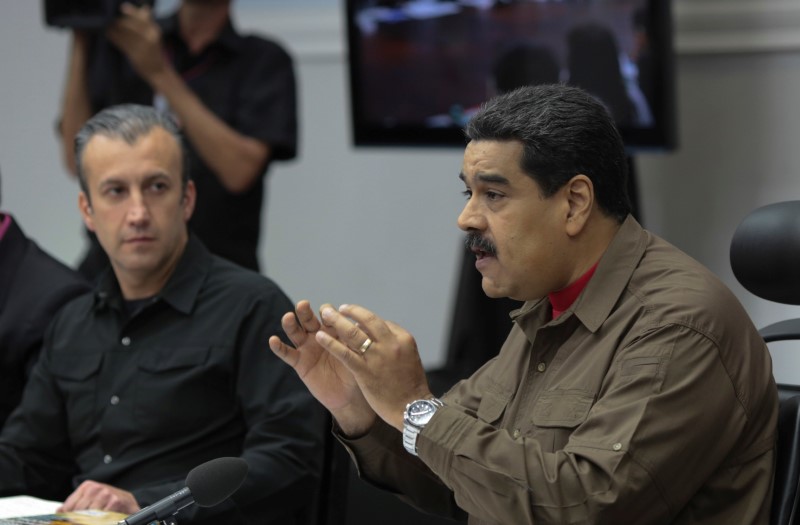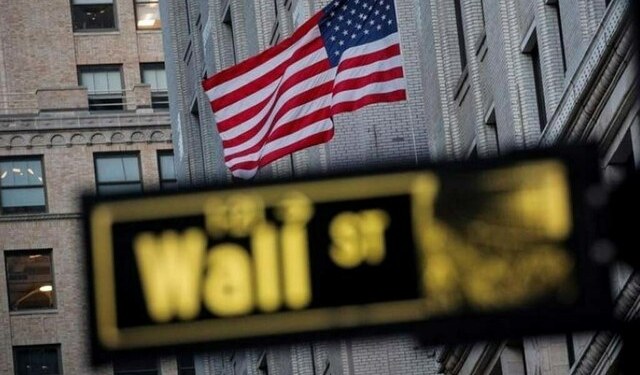 © Reuters. Venezuela’s President Nicolas Maduro speaks during a meeting with ministers in Caracas
© Reuters. Venezuela’s President Nicolas Maduro speaks during a meeting with ministers in CaracasBy Alexandra Ulmer
CARACAS (Reuters) – Mobs of Venezuelans gathered outside some Caracas supermarkets on Saturday after President Nicolas Maduro’s government forced shops to slash prices, the latest unrest in the country’s food shortage crisis.
Authorities on Friday ordered supermarkets to cut prices to levels they were a month ago, a drastic reduction given Venezuela’s hyperinflation.
At one supermarket in a high-end district of Caracas, hundreds of people including babies, pensioners and children with disabilities gathered in chaotic scenes.
“We’re hungry! We want food!” they screamed.
“In my house, we don’t eat three times a day,” said MileidyAcosta, a 28-year-old with three children. “People are fed up. A person earning the minimum wage couldn’t buy even tomato sauce.”
Maduro raised the minimum wage this year, though at the black market exchange rate it is still worth just $2 per month. The Venezuelan currency has weakened some 98 percent against the U.S. dollar in the last year.
On top of hunger affecting millions, shortages of medicines have led to needless deaths as the country goes through an economic crisis. Long supermarket lines and people eating from the trash are common sights.
Maduro’s government blames the problems on the opposition, the United States and business people he says are waging an “economic war” against his government.
Critics instead point to strict currency and price controls, enacted originally more than a decade ago, and a badly planned economic policy.
“This doesn’t help us. If they supply something, it’ll be gone in a few days and they won’t supply more,” said Edgar Romero, a 45-year-old drummer who said he initially had supported Maduro’s predecessor Hugo Chavez. “But we have to eat.”
Fusion Media or anyone involved with Fusion Media will not accept any liability for loss or damage as a result of reliance on the information including data, quotes, charts and buy/sell signals contained within this website. Please be fully informed regarding the risks and costs associated with trading the financial markets, it is one of the riskiest investment forms possible.
Source: Investing.com






























